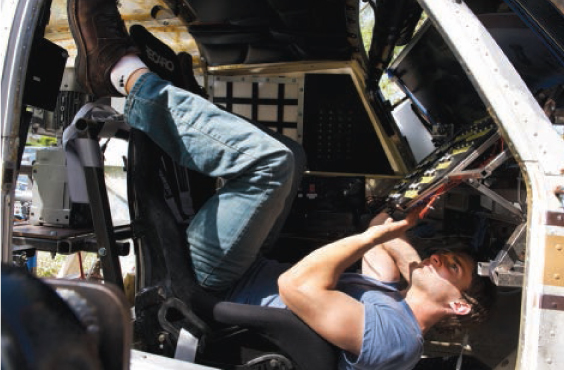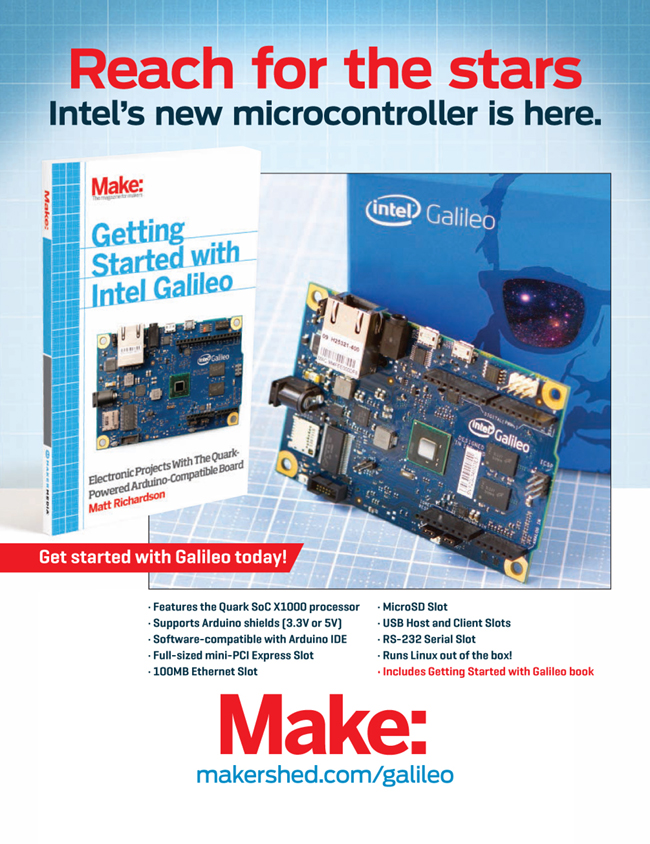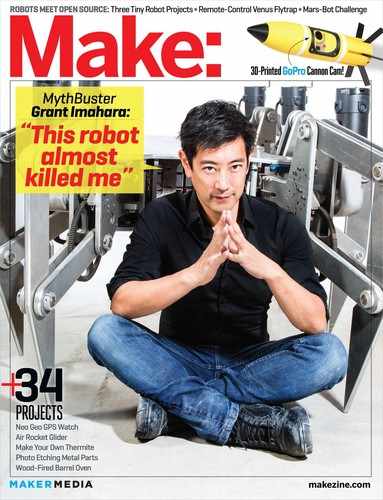How Maker Faire Shaped My Future
From hobbies to Harvey Mudd via a salvaged aircraft.
Written by Sam DeRose

Tony DeRose
EVERY SATURDAY MORNING FOR EIGHT MONTHS, I rolled out of bed into our garage to join the rest of the team. We were working on our most ambitious project to date: The Viper, a flight simulator that we designed, built, and fundraised ourselves. On weekdays we were high-school students, but on the weekends we built a spinning, two-axis motion gantry out of a salvaged airplane fuselage, created custom software around an open-source flight simulator game, and managed a website with hundreds of photos and dozens of update videos, attracting widespread internet attention. Thanks to donations from Nvidia, Autodesk, and a Kickstarter campaign that raised $16,000, we were able to debut The Viper at Maker Faire 2012, where we shared our project with thousands of attendees.
However, this story starts way before high school. It was on my 12th birthday that I got tickets to the very first Maker Faire, back in 2006. The battling bots and giant flaming sculptures captured my attention so much that I requested to go back the next year. The third year, my dad and I got ambitious and decided to exhibit a project: a 2'x3' multitouch display for a computer.
As a 14-year-old, I got hooked on explaining and demonstrating our exhibit to people who were as interested and excited about our project as we were. After two days of discussing the physics of light refraction and the best ways to diffuse LEDs with complete strangers, I realized how special Maker Faire is. People who make really cool stuff in their garages congregate from all over, and the resulting atmosphere is an addictive blend of wacky new ideas, collaboration, and shared excitement. From then on, it became an annual tradition to create something for Maker Faire.
“People who make really cool stuff in their garages congregate from all over, and the resulting atmosphere is an addictive blend of wacky new ideas, collaboration, and shared excitement.”
As our projects broadened to include numerous different areas of making, so did our interests, skills, and connections with other makers in the area. As a result, the creations we exhibited at Maker Faire became increasingly elaborate. It took five years of this snowball effect for us to work up to The Viper.
For the eight months of the build, I was completely enveloped in The Viper. Even though we only worked as a team on weekends, most of us spent the rest of the week mulling over clever design solutions, torque calculations, and how we were possibly going to finish in time for the Faire. I constantly got asked why I was slaving away on something that didn’t really do anything important. The answer seemed obvious to me, and when we finally finished the Viper and brought it to Maker Faire, it was obvious to everyone at the Faire as well. For us makers, it seems like a simple answer: Because it’s awesome, that’s why!
But the real reason lies deeper. It’s a truly rewarding experience creating something that inspires and excites people, or that causes them to stop, think, and ask a question. Why did I devote months of my life to The Viper? Because it was projects like The Viper that originally inspired me back when I was 12 at the first Maker Faire.
Making started as a hobby, but has turned into more. When I was applying to colleges, I zeroed in on Harvey Mudd because it has a fantastic machine shop and a student body who uses it. At Harvey Mudd, I feel the same shared excitement as I do at Maker Faire, and for the first time in an academic setting, I’m surrounded by peers who think and make like I do. Every job or summer internship I’ve had has been based off one question: How much cool stuff do I get to make?
I’ve realized I want to spend my life working on exciting projects with a team of people who are as obsessed with making as I am. This realization is not only responsible for how I spend my free time, it’s currently shaping my career path. So get inspired, make stuff, repeat. ![]()
SAM DEROSE
loves woodworking, cooking, electronics, sewing, and just about anything that involves creating fun new stuff. He’s currently a sophomore at Harvey Mudd in Los Angeles, but his true home is the San Francisco Bay Area.

